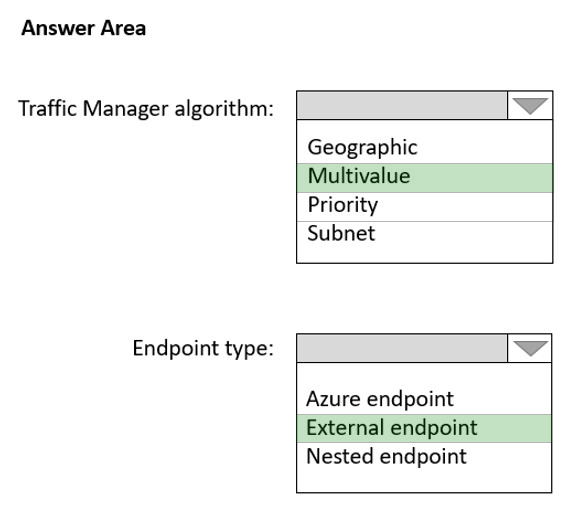

HOTSPOT -
Your company has 10 instances of a web service. Each instance is hosted in a different Azure region and is accessible through a public endpoint.
The development department at the company is creating an application named App1. Every 10 minutes, App1 will use a list of endpoints and connect to the first available endpoint.
You plan to use Azure Traffic Manager to maintain the list of endpoints.
You need to configure a Traffic Manager profile that will minimize the impact of DNS caching.
What should you configure? To answer, select the appropriate options in the answer area.
NOTE: Each correct selection is worth one point.
Hot Area:

VonKellus
Highly Voted 2 years, 3 months agoBon_
1 year, 11 months agowmohsen
Highly Voted 2 years, 3 months agoDean208
2 years, 2 months agopinpin06
2 years, 3 months agoLazylinux
Most Recent 9 months, 1 week agobakamon
1 year, 2 months agosapien45
1 year, 10 months ago1particle
2 years agoFearless90
2 years, 1 month agoFearless90
2 years, 1 month agounclegrandfather
2 years, 1 month agokogunribido
2 years, 1 month agomilan92stankovic
2 years, 2 months agoWhatsamattr81
2 years, 2 months agoRVR
2 years, 3 months agojkklim
2 years, 3 months agoKay04
2 years, 3 months agoanwar1
2 years, 3 months ago